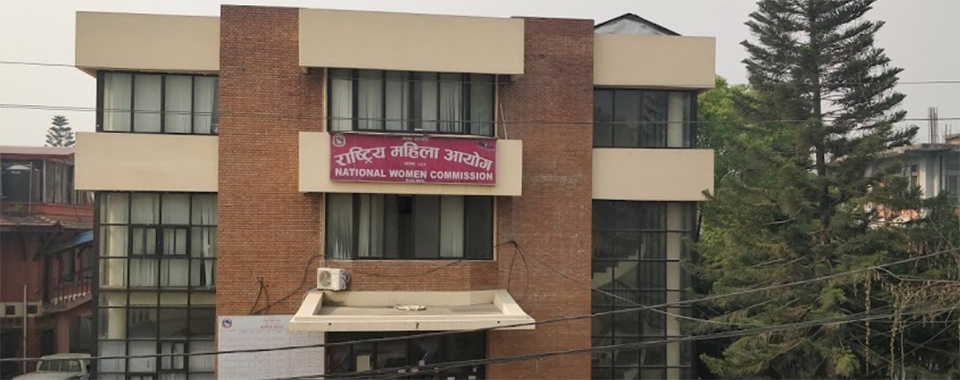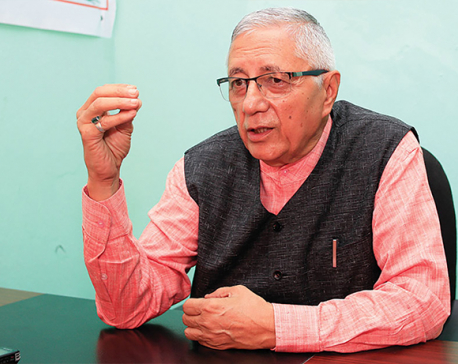
OR
Constitutional bodies without officials despite mandatory provision
Published On: June 30, 2019 07:12 AM NPT By: Ashok Dahal | @ashokpillar

KATHMANDU, June 30: The Constitutional Council (CC) headed by the prime minister has failed to pick the heads and other office bearers of various constitutional commissions for years although a provision in the constitution makes a prompt appointment of such officials mandatory.
At least three constitutional commissions have been lying vacant for over two years, with the CC not paying any attention to making the necessary appointments. Currently headed by bureaucrats, the statutory commissions--National Dalit Commission, National Women’s Commission and Indigenous Nationalities Commission—are unable to issue any directives or make recommendations to the government on some important issues.
Article 284 of the constitution has a mandatory provision for initiating the appointments process at the constitutional bodies prior to the expiry of terms of the incumbents and for filling the posts immediately after they fall vacant.
“The CC must make a recommendation for appointment under this constitution before one month of the vacation of the office of the Chief Justice or the chief or official of a constitutional body,” reads Clause 3 of Article 284.
Clause 4 of the same article further says that ‘if such office falls vacant because of death or resignation, it may so make a recommendation for appointment that the office is filled within one month after the date of vacancy.’
But the Dalit and Women’s commissions have been without not only their heads but also any other office bearers for nearly two years since the terms of the previous office bearers ended in October 2017 following the enactment of new law concerning the functions of the commissions. The CC has never appointed a head or office bearers at the Indigenous Commission since its establishment two years ago.
“We were excited after a constitutional commission was envisioned under the new constitution for the empowerment of Indigenous communities. But the government didn’t implement the provision, leaving the commission without a head or members for nearly four years since the commencement of the new constitution,” Jagat Baram, chairperson of the Nepal Federation of Indigenous Nationalities (NFIN), said.
In the absence of any office bearers, the commissions have become unable to fulfill their responsibilities.
The Women’s Commission received over 1,100 complaints over violence against women this fiscal year. But it has failed to act upon any serious issues in the absence of the decision-making officials. Similarly, the Dalit Commission has failed to initiate proactive activities to discourage caste-based discrimination, which is outlawed in the country. “In the absence of office bearers the commission has remained unable to issue any directive to the government or make necessary recommendations,” said Giriraj Gyawali, spokesperson at the Dalit Commission.
Following pressure from stakeholder groups, the CC called for applications for the posts of heads and members of the seven various constitutional commissions in August last year.
But the council recommended the heads for only four commissions and a member for one, leaving three commissions still without heads or members.
One post each of commissioner is vacant at the Election Commission and the Commission for Investigation of Abuse of Authority, while three commissions including Muslim Commission, Madhesi Commission and Tharu Commission have only their heads but no members.
Article 265 of the constitution states that parliament may review the need and relevance of any of the seven constitutional commissions after 10 years of the commencement of the constitution.
Asked about the CC’s plans for making appointments at the commissions, CC Member Deputy Speaker Shivamaya Tumbahamphe said they will discuss the issue at the next meeting. “It has been a long time since a meeting of the council was held. We will discuss about the appointments at these bodies at the next meeting,” Tumbamphe told Republica.
The last meeting of the council, held on March 25, concluded after recommending a chief election commissioner and a member of the National Inclusive Commission. Prime Minister KP Oli has been delaying another meeting , citing internal disputes in his party, said NFIN Chair Baram. “We have been repeatedly pressing Prime Minister Oli to make the appointments. He has assured us of doing so after settling internal differences in his party ,” he added.
The chief justice, the speaker and deputy speaker of the House of Representatives, the chairperson of the National Assembly, and the leader of the main opposition party in the lower house are members of the CC.
You May Like This

Koirala demands withdrawal of Constitutional Council Bill
KATHMANDU, July 11: Dr Shekhar Koirala of the ruling Nepal Congress (NC) said that the Bill related to the Constitutional... Read More...

Court orders release of person mistakenly arrested
KHOTANG, Jan 22: The District Police Office, Khotang is under instruction to release a person arrested under charges related to... Read More...

Work on Special Court for conflict-era cases starts
KATHMANDU, Aug 31: The government has started preparations for setting up a separate Special Court for conflict-era cases of human... Read More...










Just In
- Heavy rainfall likely in Bagmati and Sudurpaschim provinces
- Bangladesh protest leaders taken from hospital by police
- Challenges Confronting the New Coalition
- NRB introduces cautiously flexible measures to address ongoing slowdown in various economic sectors
- Forced Covid-19 cremations: is it too late for redemption?
- NRB to provide collateral-free loans to foreign employment seekers
- NEB to publish Grade 12 results next week
- Body handover begins; Relatives remain dissatisfied with insurance, compensation amount







Leave A Comment